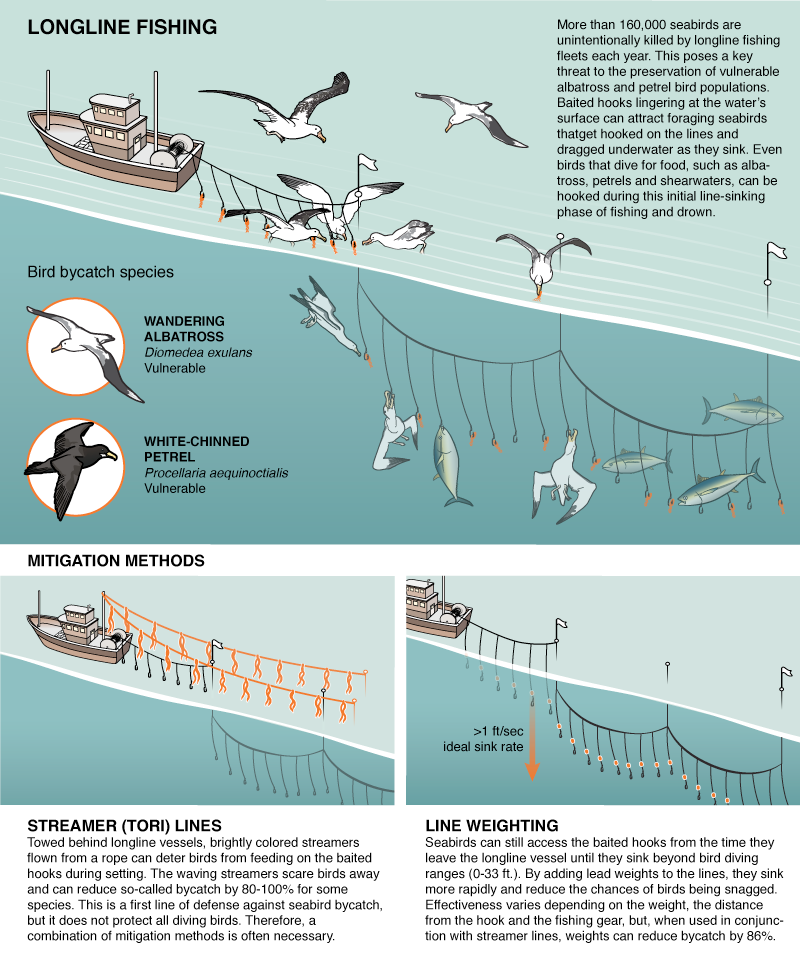Sebastián Jiménez (Laboratorio de Recursos Pelágicos, Dirección Nacional de Recursos Acuáticos, Montevideo, Uruguay) and colleagues have published in the journal Animal Conservation on the effectiveness of branch line weighting in pelagic longline fisheries.
The paper’s abstract follows:
“Substantial numbers of seabirds are bycaught each year in pelagic longline fisheries. Increasing the sink rate of baited hooks by reducing the distance between the hook and the weight of the branch lines (leader length) has enormous potential to mitigate this bycatch. Here, we test the effect of reducing the leader length on seabird attacks on baited hooks and bycatch rates plus the effect on fish catch rates on the Uruguayan slope. Two branch line configurations were tested: a control treatment (CT) of the standard branch lines used in the Uruguayan fishery, with 75 g swivels on 4.5 m leaders; and two experimental treatments (ET) consisting of branch lines with either a 60 g or 65 g weight on 1 m leaders. Seabird attacks were assessed during 34 daylight longline sets (100–150 hooks each) without a bird scaring line (BSL) comparing two treatments: CT versus 65 g ET. The fish catch was assessed during 224 paired sections (75 vs. 75 hooks) from 109 fishing sets deployed mostly during the night and with a BSL, comprising 77 pairs of CT versus 60 g ET and 147 pairs of CT versus 65 g ET. The number of primary (231 nvs. 91) and multiple (50 vs. 14) attacks were significantly higher in the CT compared with the 65 g ET respectively. The seabird bycatch rate was 42.5% lower in the 65 g ET than in the CT. The use of branch lines with short leaders did not affect the catch of target species. This study conducted in an area of high bycatch risk provides strong experimental support for the use of branch line weighting to reduce seabird bycatch. Based on the observed bycatch rates, this measure should be implemented in combination with other mitigation measures. The simultaneous use of branch line weighting, a BSL and night setting resulted in zero seabird bycatch.”

With thanks to Sebastián Jiménez.
Reference:
Jiménez, S., Domingo, A. Forselledo, R., Sullivan, B.J. & Yates, O. 2018. Mitigating bycatch of threatened seabirds: the effectiveness of branch line weighting in pelagic longline fisheries. Animal Conservation doi:10.1111/acv.12472.
John Cooper, ACAP Information Officer, 04 January 2019

 English
English  Français
Français  Español
Español